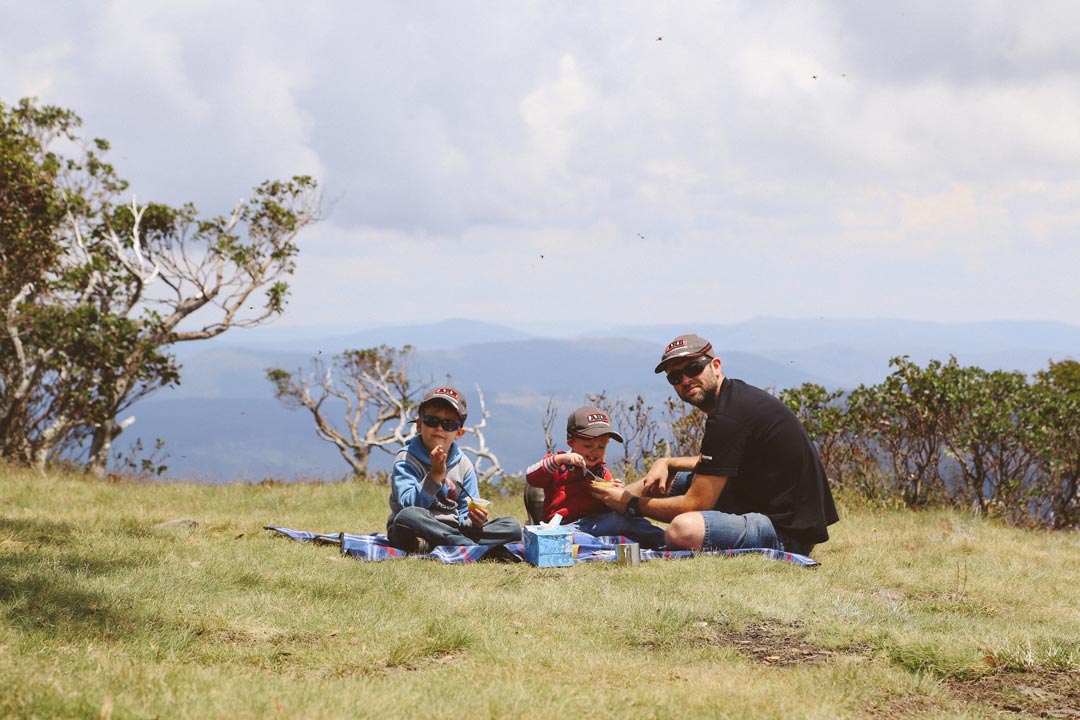Can You Travel the Outback with Kids?
 The Outback is home to many of Australia’s most iconic journeys and destinations, but traversing it with a family can be incredibly daunting. Head into Australia’s arid centre with confidence using these proven tips for travelling the Outback with kids.
The Outback is home to many of Australia’s most iconic journeys and destinations, but traversing it with a family can be incredibly daunting. Head into Australia’s arid centre with confidence using these proven tips for travelling the Outback with kids.
Know how well your kids travel
Whether you’re on a coastal highway or a dusty desert track, how much transit time your kids can handle is a key consideration for road trips and off-road touring. If you have an infant, that time could be every hour-and-a-half, or you may have a toddler and an eight-year-old who are happy to travel for four hours at a time. So long as you can gauge that level comfortably and then plan your rest stops accordingly, you can balance your travel and rest time to ensure your children aren’t getting irritated by constant travel.
Even though rest areas and playgrounds are not as plentiful in the Outback as they are in populated coastal areas, your children will often surprise you in how well they can adapt and enjoy the simplicity of a creek in the desert or a large shady tree, playing with each other, their toys or even riding bikes to stretch cramped legs.
You don’t need much additional gear
If you have never travelled through remote arid regions with children, it’s understandable to feel a dissuasive amount of uncertainty about what gear you need to take. In reality, there are only a few core areas you need to cover, and there are quite a few pieces of gear that can make the trip easier for everyone.
One of the most prominent concerns is bedding – you want your kids to be comfortable camping for days or weeks at a time, and getting the correct sleeping bag is a large part of that. Most sleeping bags for kids are not rated, so ensuring you purchase a rated sleeping bag suitable for chilly Outback nights is highly recommended.
Good shoes and comfortable long pants are also simple items that make a large difference, while a set of back seat pocket organisers can make day-to-day storage and in-cab tidiness a simple task. Mosquito head nets (in some circumstances), vehicle awnings with annexes, interlocking foam mats, neck pillows, efficient means of washing clothes and other extras can make your days simpler and travel routines more efficient too.
Keeping them occupied
Keeping the backseat entertained and engaged in the journey during extended stints of travel is important, both for your kids’ happiness and family togetherness. Digital entertainment such as DVD players, audio books, portable gaming consoles and tablets – when used within reason - are great ways to let your kids unwind. Touring holidays are also the ideal platform for extensive reading, giving your kids a good reason to invest lots of unbroken time in a good book.
Giving your kids the responsibility of journaling the trip is an all-round win: it’s a fantastic memento, it’s a project that requires engagement and reflection, and it can be a creative outlet for them to interpret what they see and experience along the way. Give them a map of the journey, a blank notepad with something to write and draw with (or both) and let them chronicle what happens.
Meanwhile, for outside play, some favourite portable toys, a ball or two, and even bikes – if you can fit them – can allow your kids to enjoy themselves outside much the same as they would at home in some of Australia’s wildest and ecologically amazing places.
Preparedness is the antidote to failure
If you’re concerned over a lack of access to public services, supplies and help in general, you needn’t be, as these issues can be mitigated with ample planning and education. Leave a good itinerary with someone back home who can be responsible for knowing your whereabouts, and who will know what to do if you’re uncontactable at agreed junctures in time. Having a satellite phone and knowing how to use it will give you means of contacting home and emergency services if need be.
Taking a reputable first-aid course (a remote-area first-aid course is even better preparation) is an excellent way of educating yourself and instilling a feeling of control over your destiny in places where you very well might be on your own as a family unit. It should also go without saying that a first-aid kit is essential on any journey through remote places, but becomes a more pressing concern for first-time family travellers.
Tangentially, it’s important to give your children a respect for the land, but equally importantly, the wildlife. Your kids should understand that all of the exciting animals found in the Outback need to be given a wide berth, and any dangerous animals should be reported to you as a parent immediately.









0 comments